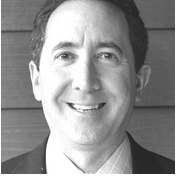Bullard’s comments hit the tape at about 12:45pm and the Bank of Mexico hiked rates by 50 bps at 2pm to 6%. That is the 6th straight meeting at which they raised and it was also by 50 bps this past December. The hiking cycle began from 4% back in June. This was followed by the Bank of Russia who today raised rates by 100 bps to 9.5% as expected and vs 4.25% one year ago. So when the cliche ‘behind the curve’ is used to describe the current stance of the Federal Reserve, they are not even in the same state as the stadium in which the curve is being thrown at them. While I’ve been whining for a year now that they should be paring back, I do think that 50 bps in March is likely a done deal, especially now that the market has just about priced it in, thus providing the Fed with cover. If the current economic situation and market pricing are the same at which they find themselves at that March meeting and they do not hike 50bps, expect long rates to jump and do it for them.
Non voting member Mary Daly said after Bullard spoke that she’s not on board with a 50 bps rate increase as she said “we can’t be overly aggressive and we can’t be too slow. We have to be just right and just right is hard. And it needs to be data dependent.” Daly also said this past November, just a few months ago, that she thought monetary policy was in a good place.
Tom Barkin, who also does not vote, said last night with respect to a 50 bps increase, “I’m open to it conceptually. Sure. I mean, there’ll be times where we’ll need to do that…Do I think there’s a screaming need to do it right now? I’d have to be convinced on that…We have to see where the data takes us.”
I’ll tell you this, the decision to hike 50 bps and any need of ‘convincing’ will have to come from Jay Powell himself. It is Powell’s damaged reputation that is predominantly on the line here as Fed Chair. He is their leader and dreams or nightmares of Arthur Burns, Richard Nixon, Gerald Ford and Jimmy Carter are likely in his head as inflation tarred their tenures.
Christine Lagarde was interviewed in a German periodical interestingly where you would think her audience would expect a tough stance on inflation but instead she took the Mary Daly approach and said “if we act hastily now, our economies could recover significantly worse and jobs would be at risk. That wouldn’t help anyone.” The ECB has had negative interest rates since 2014 and has been doing QE for about 10 years. ‘Patience’ has taken on a new form for them. European yields are mixed in response. Italian yields in particular, the home of the highest debt level in the region and of the Prime Minister who is the architect of current ECB monetary policy, is higher for the 9th day in the past 10 in which it’s gone to 1.92% from 1.28% two weeks ago.
The bottom line here for developed market central bankers is they have grand plans on how to get to 2% inflation but when they get there, and now WELL ABOVE it, they have no plans on how to react. Ironically it’s the emerging market central bankers that are the prudent and proactive ones, ex Turkey.
Taiwan, the most important tech spots in the world right now, saw its exports in January rise by 16.7% y/o/y which is just below the estimate of up 18.3%. Exports of electronics components, which include semi’s, were up 19.7%. Exports to China rose 5.7% and to the US by 34%. Imports were up 25% as expected. The TAIEX was down .1% and is up .5% year to date with Taiwan Semi not surprisingly the largest component.
Taiwan also said its January CPI was higher by 2.8%, 4 tenths more than expected with a core rate higher by 2.4%, 8 tenths above what was forecasted.
The only thing of note in Europe was the UK GDP data where its December print wasn’t as soft as forecasted and thus a bit less negatively impacted by omicron even though it still was negative. IP and construction were positive but consumer spending, not surprisingly, was soft. With respect to the BoE, the market in the UK is now beginning to price in a 50 bps hike at their next meeting. Their benchmark rate is currently at .50% vs the 10 yr inflation breakeven which is at 4.12%.
UK Inflation 10 yr Breakeven

 Peter is the Chief Investment Officer at Bleakley Advisory Group and is a CNBC contributor. Each day The Boock Report provides summaries and commentary on the macro data and news that matter, with analysis of what it all means and how it fits together.
Peter is the Chief Investment Officer at Bleakley Advisory Group and is a CNBC contributor. Each day The Boock Report provides summaries and commentary on the macro data and news that matter, with analysis of what it all means and how it fits together.